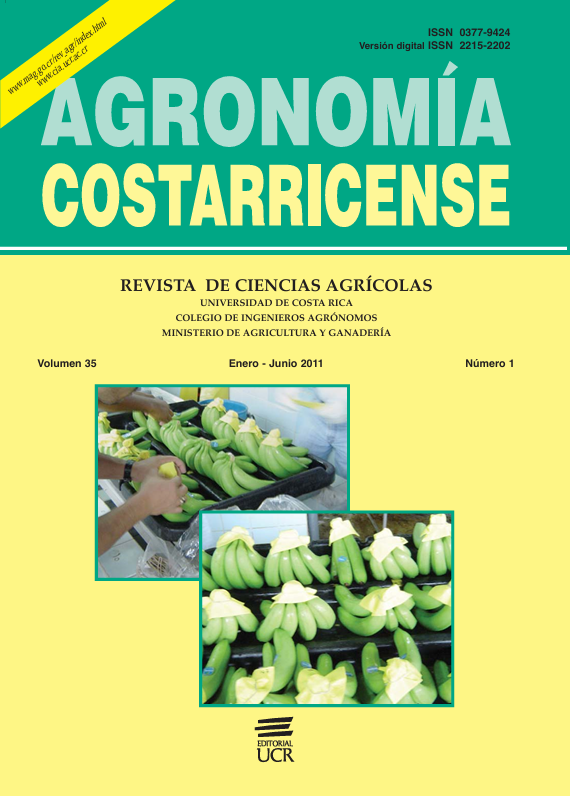Abstract
This study emphasizes on the soil forming factors and soils distribution of the middle-upper Pirrís River watershed, Talamanca, Costa Rica, aregion locally known as Los Santos. This area covers around 25 000 ha, at elevations from 1078 to 3140 m, and a range of yearly average rainfall from 1954 to 2233 mm. Geologically, rocks of the area represent a period spanfrom Holocene to Oligocene. Four major soil units were identified: 1)recent soils developed from volcanicash (high elevation sections);2)soils developed from oldgeologic parent materials of theTalamanca Range and the Brunqueña Hills (middle elevation sections); 3) soils developedon and around intrusivevolcanic buildings (medium tohigh elevation sections of the landscape); and 4) soils developed from recent alluvial materials deposited on valley floors (lower positions of the landscape). Soils developed on the older materials from the Pliocene to the Oligocene, present an argillic horizon as a final result of weathering and soil formation. Soils from Pleistocene to Upper Miocene intrusive materials, present a higher quartz content. Soils developed from recent alluvial deposits present a cambic horizon, but not an argillic horizon and the volcanic ash materials may present a cambic horizon or a buried argillic horizon. Six soil consociations and 22 soil associations were described in the area. Mayor soil orders in the region are Ultisols, Andisols, Inceptisols and Entisols, including 4 suborders, 6 great groups, 12 subgroups and 9 soil families.
##plugins.facebook.comentarios##

This work is licensed under a Creative Commons Attribution-NonCommercial-NoDerivatives 4.0 International License.
Copyright (c) 2016 Agronomía Costarricense


